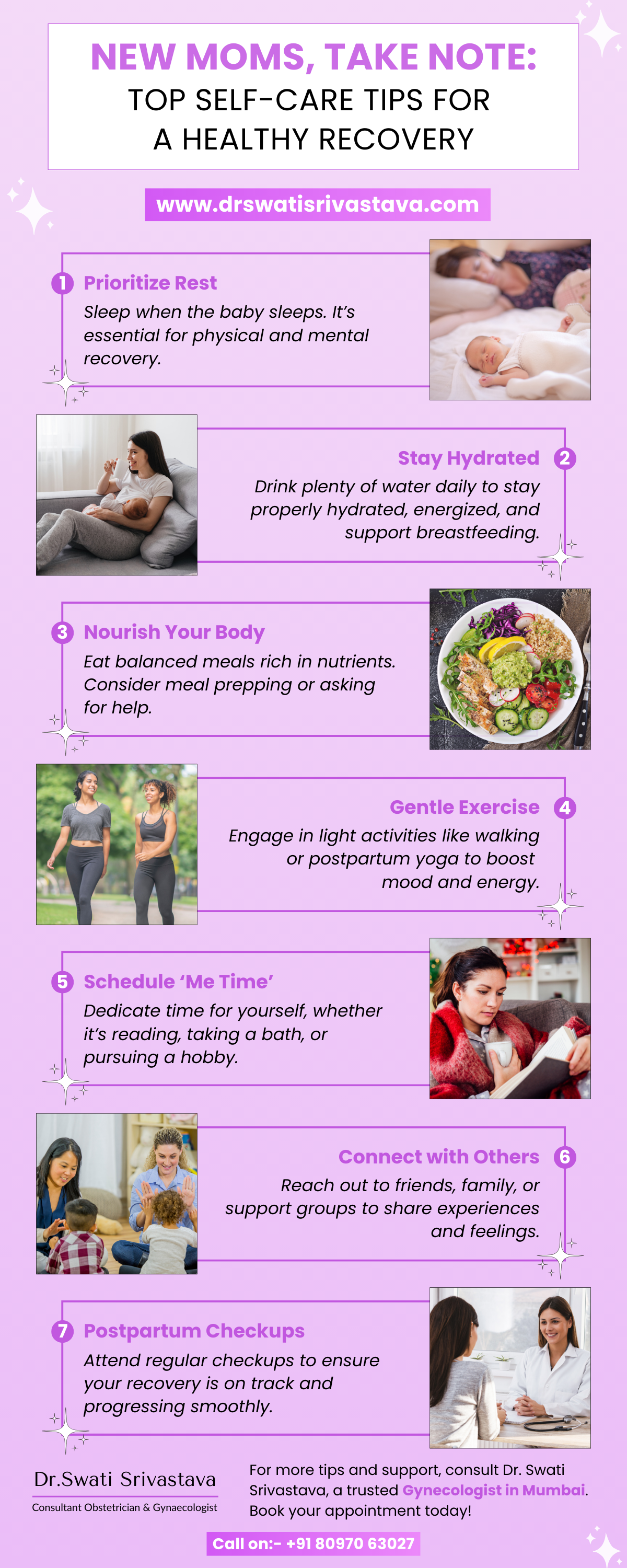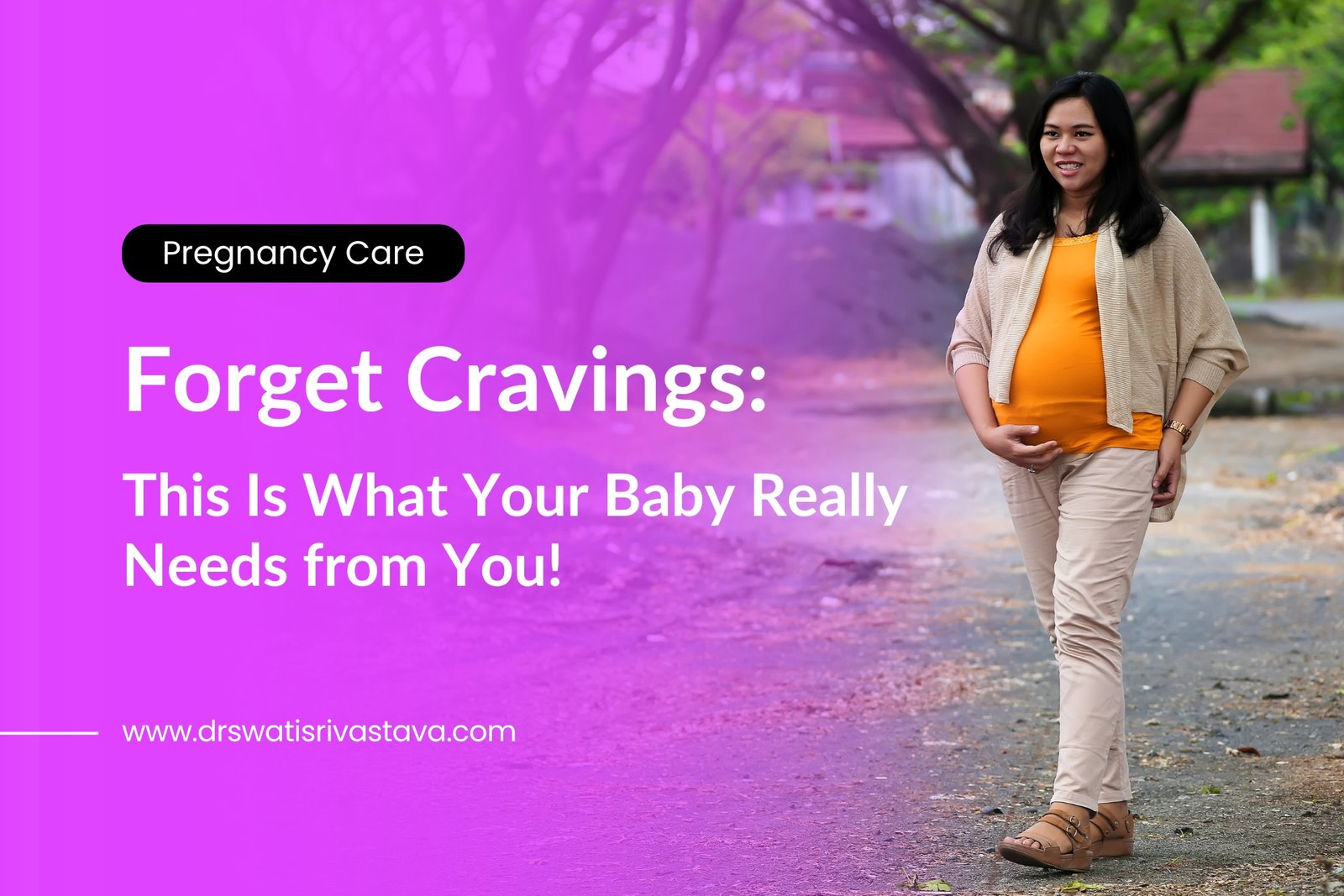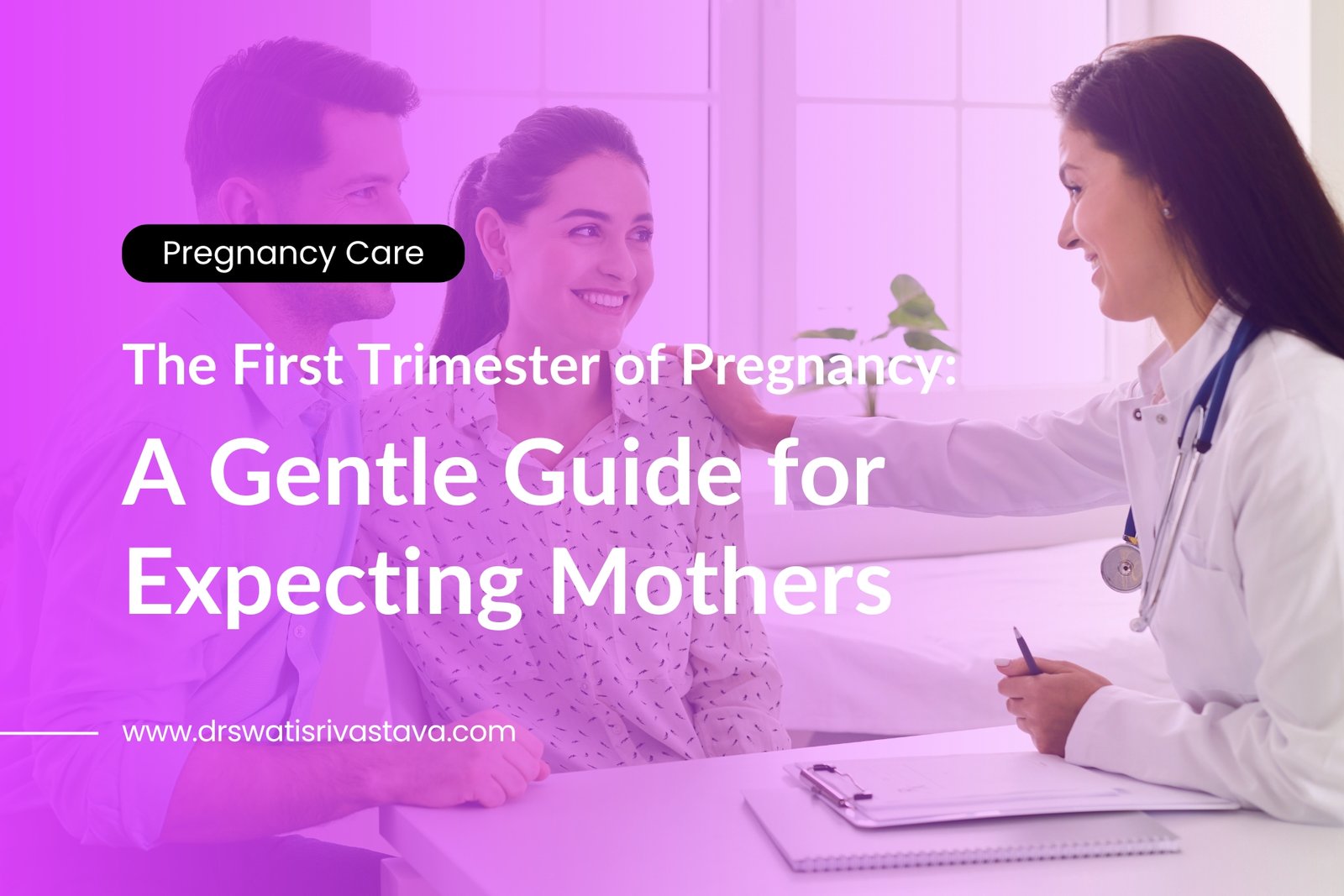Becoming a mother is a beautiful journey, but the postpartum phase can be challenging.
After giving birth, your body needs time to heal, and taking care of yourself is just as important as taking care of your newborn.
Many new mothers focus entirely on their baby’s needs and forget about their own well-being. But remember, a healthy and happy mother means a happy baby!
If you have recently delivered a baby or are preparing for postpartum recovery, here are some simple and practical self-care tips to help you heal and regain your strength direct from one of the best gynaecologist in Mumbai.
1. Rest as Much as Possible
Your body has gone through major changes during pregnancy and childbirth, and now it needs time to recover.
Lack of rest can lead to exhaustion, irritability, and slower healing. Sleep whenever your baby sleeps, even if it’s just short naps throughout the day.
It’s common for new mothers to feel the need to “do it all,” but remember, postpartum recovery is not the time to push yourself. Household chores, cooking, and even attending to guests can wait.
Prioritize your health first.
Tip: Accept help from your spouse, family, or close friends. Let them assist with cooking, cleaning, or taking care of the baby while you rest. Your well-being is just as important as your baby’s care!
2. Eat Nutritious Food
Your body needs the right nutrition to heal, regain strength, and support breastfeeding.
A well-balanced diet will help improve your energy levels, boost immunity, and promote faster recovery.
Focus on foods rich in protein, iron, and fiber to keep your body strong. Include:
- Protein-rich foods – Eggs, lentils, dairy products, and nuts to support tissue repair.
- Iron-rich foods – Spinach, jaggery, dates, and lean meats to prevent postpartum anemia.
- Hydration – Drink plenty of water, coconut water, and fresh fruit juices to stay hydrated and maintain milk supply.
Avoid processed and junk foods, as they can make you feel sluggish and affect digestion. Instead, opt for homemade meals packed with essential nutrients.
Tip: Don’t skip meals! Eating small, frequent meals throughout the day will keep your energy levels stable and help in postpartum recovery.
3. Manage Postpartum Pain and Discomfort
After childbirth, your body needs time to heal, and some level of pain or discomfort is normal.
Whether you had a normal delivery or a C-section, taking care of yourself will make recovery smoother.
Here’s how you can manage common postpartum discomforts:
- Perineal Pain (for Normal Delivery) – If you have stitches or soreness, a warm sitz bath (sitting in warm water) can help reduce pain and swelling. You can also use a cold compress for relief.
- C-Section Recovery – Avoid lifting heavy objects and follow your doctor’s advice for proper wound care. Keep the incision area clean and dry to prevent infections.
- Body Aches and Back Pain – Your body has undergone significant changes, and it’s common to experience back or joint pain. Gentle massages, warm compresses, and proper posture while breastfeeding can help.
- Postpartum Cramps – Some women experience cramps as the uterus shrinks back to its normal size. Staying hydrated and using a hot water bag on your lower abdomen can provide relief.
Tip: If the pain feels severe or doesn’t improve, consult a gynaecologist near you to ensure there are no complications.
4. Take Care of Your Mental Health
Motherhood is a beautiful journey, but the postpartum period can bring emotional ups and downs.
Many new mothers experience mood swings, anxiety, or feelings of being overwhelmed due to hormonal changes, lack of sleep, and new responsibilities.
It’s completely normal to feel this way, but it’s important to take care of your mental well-being.
Here’s how:
- Talk About Your Feelings – Share your thoughts and emotions with your spouse, family, or a close friend. Having a strong support system makes a big difference.
- Take Short Breaks – Even 10-15 minutes of quiet time, listening to music, or practicing deep breathing can help you feel refreshed.
- Avoid Isolation – Stay connected with loved ones, join new mother support groups, or talk to other moms going through similar experiences.
- Watch for Signs of Postpartum Depression – If you feel persistent sadness, extreme fatigue, or have difficulty bonding with your baby, don’t ignore it. Seeking professional help by consulting a gynaecologist is important.
Tip: You are not alone! If you ever feel emotionally overwhelmed, don’t hesitate to reach out to a gynaecologist who can guide you to the right support and care. If you are living in Mumbai and looking for a compassionate gynaecologist in Mumbai, you can consult Dr Swati Srivastava
5. Stay Active with Light Exercises
Your body is still healing after childbirth, so jumping into intense workouts is not recommended.
However, gentle movement can help boost energy, improve circulation, and support emotional well-being.
Start with these simple activities:
- Walking – A short walk around your home or in a nearby park can improve blood circulation and uplift your mood.
- Stretching – Light stretching helps relieve stiffness and improves posture, especially if you spend long hours breastfeeding.
- Deep Breathing Exercises – Practicing slow, deep breaths can reduce stress, improve lung capacity, and promote relaxation.
- Pelvic Floor Exercises (Kegels) – These exercises help strengthen pelvic muscles, reduce postpartum urinary issues, and support recovery.
Avoid any strenuous exercises until your doctor gives you the green light, especially if you had a C-section.
Tip: Always listen to your body. If you feel pain or discomfort, stop and rest. Always consult a gynaecologist in your area before starting any new workout routine.
6. Building a Strong Support System
Adjusting to life with a newborn while recovering from childbirth takes time, and trying to do everything alone can lead to exhaustion.
Family, friends, and healthcare providers can assist with daily tasks, baby care, and emotional support. Accepting help allows you to focus on healing.
Many new mothers feel guilty about needing support, but asking for help is completely normal.
Delegate household chores, meal preparation, or baby care to your spouse or family members.
Clear communication makes it easier for others to step in.
Tip: You are not meant to do this alone! You can join any new mother support groups. Support groups provide a space to share experiences, get advice, and feel less alone in the journey.
Postpartum Checkups: The Importance of Professional Care
While taking care of your baby is a priority, taking care of yourself is equally important.
Many new mothers tend to skip postpartum checkups, assuming that if there are no major issues, they don’t need medical attention.
However, regular gynecological check-ups help ensure that your body is healing well and allow doctors to catch any concerns early.
Even if you feel fine, visiting your doctor helps track your physical and emotional well-being.
- Monitor Healing – Whether you had a normal delivery or a C-section, a doctor will check how well your body is healing and address any pain or discomfort you may have.
- Manage Postpartum Symptoms – Postpartum bleeding, hormonal changes, and body aches are common, but if you experience excessive bleeding, severe pain, or unusual symptoms, your doctor can provide the right treatment.
- Emotional Well-being – If you’re feeling anxious, overwhelmed, or showing signs of postpartum depression, your doctor can offer guidance and suggest support options.
- Birth Control & Family Planning – If you’re not ready for another pregnancy soon, this is the time to discuss contraception options with your doctor.
Tip: Schedule your first postpartum checkup within 6 weeks of delivery or earlier if you have concerns.
Conclusion
Postpartum recovery is a journey that requires patience, care, and support.
By prioritizing rest, proper nutrition, emotional well-being, and regular checkups, you can heal faster and enjoy this beautiful phase of motherhood.
Remember, taking care of yourself is just as important as taking care of your baby.
If you’re in Mumbai and looking for expert postpartum care, Dr. Swati Srivastava, a trusted gynaecologist in Mumbai, can guide you through a smooth and healthy recovery.
Don’t hesitate to seek help when needed—your well-being matters!









